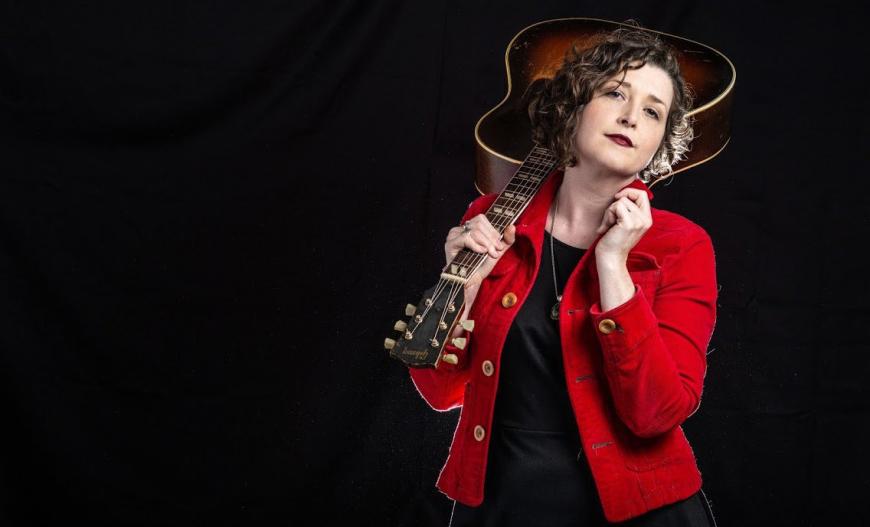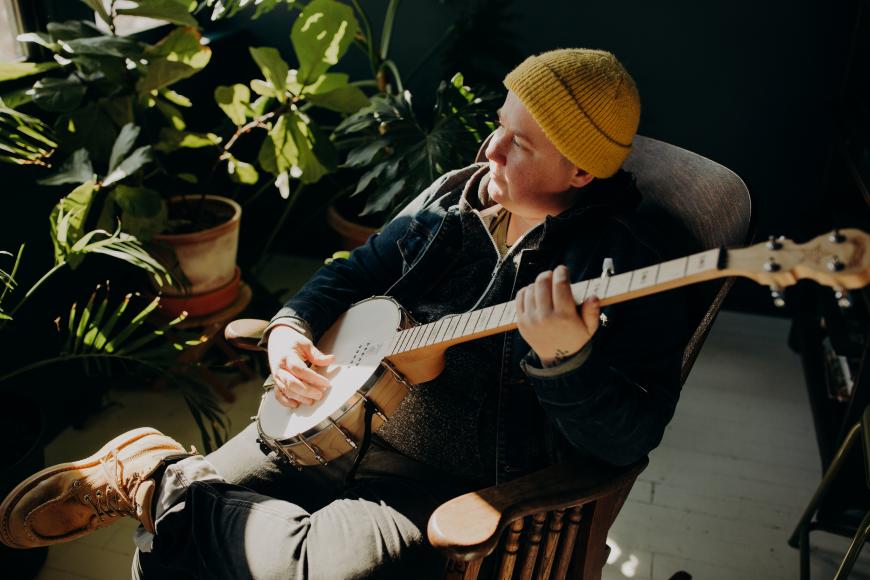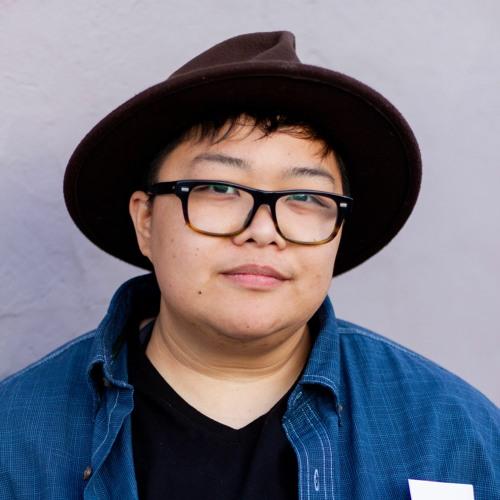
Growing up in Los Angeles, Briget Boyle had a front-row view into the intricate process by which various artists and craftspeople weave together the disparate elements that go into completing movies and albums. Her father, recording engineer Tim Boyle, worked with industry heavyweights like Quincy Jones, the Rolling Stones, Whitney Houston, and Tom Waits, while also overseeing the sound on hundreds of film and television shows as chief audio engineer on Paramount and Universal scoring stages.
In some respects, she followed him into the family business, carving out a singular career as a vocalist steeped in Balkan, Eastern European, and American roots music. But whether writing and recording her own songs, singing with the all-women choir Kitka or the rootsy True Life Trio, Boyle saw independent musicians struggling to juggle multiple hats, trying to fulfill all the roles required to create, perform and distribute new music.
“For many of us, creating your own music isn’t just about writing songs and performing,” she said. “It means you have to be your own booking agent, designer, and bankroller, just for starters.”
Before her father’s death in 2019, they had created Waxsimile Productions, a boutique production company that released several recordings by friends. Boyle had a broader vision for the company. She credits her epiphany to a gig at the Ivy Room where she saw a set by non-binary, alt-country singer/songwriter Dillbilly, “and I was smitten. Clearly they should be heard by a lot of people.”
Boyle got in touch with Dillbilly to look into helping with an upcoming album “and we recognized that advertising platforms weren’t listing non-binary as a gender,” she said. “I started talking to my dad about all of this. I’m queer, married to a nonbinary person. I was trying to explain to my dad that the queer music scenes I see are so strong, supportive, kind, and generous. He and I had some disagreements about that direction. I was interested in how can we support not just queer people, but people of color. We have this label. We might as well be intentional with how we work with artists.”

When the pandemic slammed the music scene shut, Boyle started to think about reinventing the company as a collective that could break through the isolation of “artists each doing the same exact things alone in their own living room,” she said. “I decided to start bringing together musicians feeling overwhelmed and burnt out. If we’re all doing the same thing, can we come together and lift each other up? Waxsimile is a Beta test of that idea.”
The public gets its first full look at the work in progress on May 7, when Waxsimile releases Wax Collective Vol. 1, a 12-track compilation featuring songs by some of the collective’s founding members. The album brings together a bevy of queer people who have long played a central role in the East Bay indie music scene, including Oakland’s Katie Cash, Berkeley’s Kofy Brown, Hayward’s Genesis Fermin, Alameda’s Liz DeRoche, and Dillbilly.
The music reflects a broad array of styles and approaches, opening with “Shout,” a crunching tribute to guitarist and rock ’n’ roll matriarch Sister Rosetta Tharpe by Katie Cash (aka Katie Colpitts). Kofy Brown delivers a slinky blues with “Rolla Coaster,” a song from her 2020 album Child of Providence. And Dillbilly’s “Duck Cover” is an intoxicating blend of acoustic singer/songwriter portraiture laced with electronic textures.
In many ways the collective grew out of Boyle’s involvement in the I Need Space Festival. Launched by Genesis Fermin and Willa Mamet, the live-streamed queer music festival was created to push back against queer-identified artists’ sudden loss of work and visibility in the first months of the lockdown. Boyle quickly joined in to help present the event under the auspices of Waxsimile and she forged a strong connection with Fermin.
“We’ve known each other through the music scene, but we became a lot closer while producing I Need Space,” Fermin said. “She was one of the most instrumental people in making that happen. We were running the show, booking the people, and developed a really good working relationship.”
Describing themself as musically polyamorous, Fermin plays in half a dozen bands, including Easy Queen, MILF!, Invincible Vacuum Cleaner Co, the Halford Wives, and Power Snatch (a tuneful duo project with Willa Mamet).
When Boyle suggested starting Waxsimile as a collective, they both had a good sense of the artists they wanted to reach out to first. And they both share a vision for Waxsimile as a vehicle for transforming at least a corner of the music business.
“The big picture, the dream and goal, is to make a huge impact with how people perceive the music industry, how people perceive artists and relate to musicians,” Fermin said. “I can see Waxsimile growing without conforming to the gatekeepers of the music world.”
It’s both a tight-knit collective and a loose confederation. Fermin is releasing an eponymous album via L.A.-based Sharpsong Music on May 28, and there’s a good deal of overlap between Waxsimile and Little Village Foundation Records. Founded by veteran blues musician Jim Pugh, Little Village has reconfigured California’s roots music scene over the past five years with releases by gospel, mariachi, blues, R&B, spoken word, and rock acts like Skip the Needle (which includes Kofy Brown and Katie Cash). And Brown and Fermin both contributes tracks to the Little Village pandemic singer/songwriter anthology 20x20.

Part of what sets Waxsimile apart is that it’s building on existing ties. Like Fermin, Cash is musically wide open, and one of her creative connections is with Oakland choreographer and dancer Sarah Bush. Last month, Waxsimile released a collaborative music video with Bush on Cash’s song “Years Gone By” (which is featured on Wax Collective Vol. 1). For Cash, there’s not just strength in numbers, there’s joy.
“As one person there’s only so much you can do, and we all stretch it so far,” she said. “What’s really exciting and appealing about Waxsimile is that we lift each other up. I’ve always believed if you’re shining, I’m shining. If you’re doing well, I’m doing well. As indie musicians we all need that support. As BIPOC, queer, female-identified musicians all of us understand what it’s like to be on the outside of the standard music industry model. Creating our own ideal is an exciting prospect.”
In the coming months Waxsimile will increasingly transition from the virtual world and weekly Zoom meetings into real-life situations on and off stage. For Boyle, the idea is to plug back into her Los Angeles entertainment roots. She looking to complete the circle back to Hollywood, and to bring a whole community along with her.
“I’d love to be the bridge that connects all these artists to a place of abundance,” she said. “People are creating films and television shows about queer life and queer love. Being able to access queer music would be really radical. Waxsimile can fill that gap. There is a sense of going full circle. I’m not trying to be my dad, but I’m taking what he taught me and applying it to my own identity.”




